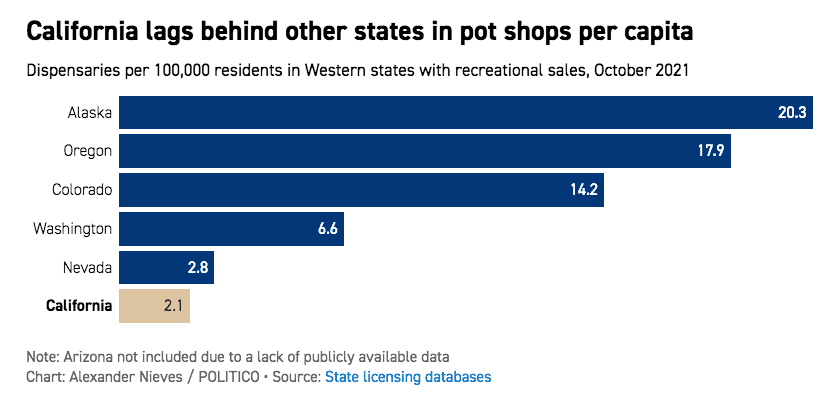UPDATED 12/3/2024
Arm yourself with resources for expanding cannabis rights in your community!
The battleground for cannabis rights has often shifted to the local level, where many of California’s cities and counties are passing ordinances restricting marijuana businesses, cannabis lounges, cultivation rights, and more. Locals have the right to enact zoning ordinances, and often listen to a few NIMBYs or well-meaning individuals who are fearful of progress, sometimes using tired old rhetoric that doesn’t stand up to science, or reality. In addition, well funded anti-tobacco organizations and health departments show up at hearings falsely equating cannabis smoke with tobacco smoke.
CANNABIS “DESERTS,” APARTMENT SMOKING BANS AND CANNABIS LOUNGES
Approximately 75-80% of the 58 counties and 482 cities in California have passed bans on cannabis businesses. This means a great many Californians cannot access safe, tested cannabis products from retailers or delivery services, despite state law legalizing both medical and recreational use and sales. In many of these places, a majority of residents voted to pass Prop. 64, and local support can be built to open these stores or at least allow deliveries.
A new law that took effect on January 1, 2024, SB 1186 (2022) requires cities and counties to allow deliveries of medical cannabis within their borders, and has a mechanism by which patients can sue jurisdictions if they cannot access their medicine in a “timely and readily accessible manner.” A few jurisdictions have moved to change their code to follow the new law, but many have not. You can find your local ordinances by searching for the name of your city and county name + the word “code.” A service like the MuniCode library will pop up; you can then search for “cannabis” (or “marijuana”) to find local laws.
Unlike tobacco, cannabis is illegal to smoke or vape in any public place in California. That means many cannabis consumers in our state have nowhere they can consume cannabis, especially because landlords often disallow smoking of any kind in apartments. Cal NORML has worked with local activists to prevent local bans on cannabis consumption in multi-unit apartments in a few jurisdications; however many more have passed bans.
Local battles are taking place over the opening of cannabis lounges and cafés, with anti-tobacco forces showing up to argue against them. Cal NORML has published a list of localities that allow cannabis consumption lounges and sponsored a cannabis café bill to allow lounges to prepare and serve food and drink, and sell tickets to concerts and other events. In November 2024, the City of Sacramento narrowly approved a five-year pilot program allowing for cannabis lounges.
CULTIVATION RIGHTS
Prop. 64 (AUMA) requires locals to allow the cultivation of six marijuana plants per residence, and allows them to pass “reasonable regulations” including requiring them to be grown indoors. DPA and the ACLU (with Cal NORML’s urging) won a court case in Fontana, CA that argued their regulations requiring a criminal background check and high fees were not reasonable.
In a perversion of Prop. 64’s intent, many local jurisdictions have moved to limit medical marijuana cultivation to six plants, claiming state law requires them to do that. In fact, AUMA added Health & Safety Code §11362.45 (i), which states: “Nothing in section 11362.1 shall be construed or interpreted to amend, repeal, affect, restrict, or preempt: Laws pertaining to the Compassionate Use Act of 1996 [Prop. 215, which legalized the use and cultivation of medical marijuana in California]. H&S §11362.5 creates an exemption to §11358 [making cannabis cultivation illegal] for a valid patient to cultivate a number of plants reasonably related to current medical need. See People v. Kelly, 47 Cal.4th 1008, 1049 (2010).
FEDERAL LEGALIZATION WOULD HELP OFFSET COSTS FOR LOCALS
Legalizing cannabis at the federal level would allow the Small Business Administration to support entrepreneurs and businesses as they seek to gain a foothold in the emerging cannabis industry. This will help defray the cost of local governments getting involved in licensing the cannabis industry, and support equity applicants and other small businesses. Local activists can also advocate at the state and federal levels for change through NORML.
LOCAL GOVERNMENTS HAVE RECEIVED GRANTS TO ASSIST EQUITY BUSINESSES
The CA Department of Cannabis Control (DCC) awards equity grant funds to local jurisdictions to provide direct technical assistance to equity applicants and licensees through their local equity programs. Local activists can watchdog those funds and assist local equity businesses in receiving local support.
LOCAL TAXATION AND CANNABIS
While state law allows locals to ban cannabis businesses, they lose out on tax revenues from legal businesses that pay sales taxes, property taxes, and payroll taxes. They will also lose out on the opportunity to apply for grants from funds recouped via Prop. 64 if they ban retail sales or commercial cultivation of cannabis.
Section 34019(f)(3)(C) of AUMA states that funds will be disbursed through the Board of State and Community Corrections “for making grants to local governments to assist with law enforcement, fire protection, or other local programs addressing public health and safety associated with the implementation of the Control, Regulate and Tax Adult Use of Marijuana Act.” However, the section goes on to state, “The Board shall not make any grants to local governments that ban both indoor and outdoor commercial cannabis cultivation, or ban retail sale of cannabis or cannabis products pursuant to Section 26200 of the Business and Professions Code or as otherwise provided by law.”
Several of the cities that have legalized cannabis have sent much of their local cannabis tax monies to law enforcement, according to a 2020 report. A second report examines racial disparities in arrest rates in cities and neighborhoods, as does a recent ACLU report. Read more.
In November 2021, voters in the city of Santa Cruz overwhelmingly passed a ballot measure upping the allocation of local cannabis tax monies from 12.5% to 20% for their Children’s Fund. Because it specifically allocated tax funds, the measure required a supermajority to pass, and won 83% of the vote. Read more.
WE CAN FIGHT BACK!
Well-funded organizations like SAM (Smart Approaches to Marijuana) and Getting It Right from the Start are focused on stopping progress at the local level in California and beyond. They are pushing bans, or a limited number of licenses, and other restrictions that only encourage a few well-funded people to game the system, setting up “equity in name only” businesses and leaving most applicants out in the cold. Local prohibitionist groups are also active.
Things you can do to fight back in your community include:
- Join or start a local NORML chapter, or join Cal NORML.
- Sign up for the NORML/Green Flower Online Training Program for Cannabis Advocates
- Sign up for alerts from your city council or county board of supervisors and track meetings that have cannabis on the agenda. Do the same for your planning commission, and any cannabis commissions that may exist.
- Educate yourself about the issues using NORML’s fact sheets, Cal NORML’s website, etc. Subscribe to Cal NORML’s email list to stay current. You an also follow us on Facebook, Twitter/X, Instagram, LinkedIn and BlueSky.
- Write, call or visit your local officials to let them know that access to licensed, tested cannabis is important to you.
- Follow your local press, blogs, and social media that touch on cannabis. Write letters to the editor or opeds on the topic. Stay reasoned, factual, and sensitive to your neighbors.
- Know your opposition and their concerns; strive for acceptable compromises where possible. Be aware of what other local jurisdictions in your area are doing on this topic.
- Build coalitions with community members and groups, like veterans, medical patient support groups, human rights organizations, equity applicants, and businesses.
- Get involved politically: know your elected officials and who is running for office. Find out their stances on marijuana legalization and what they will do to implement Prop. 64.
- Stay in touch with California NORML about happenings in your city or county, or for advice on strategy and talking points.
USE THE FACTS
Oftentimes people will show up at a meeting waving a single scientific study that they claim is definitive on a topic such as the effect of legal cannabis on teen use, driving, crime rates, etc. In reality, the preponderance of science, including the comprehensive 2017 National Academy of Sciences report on cannabis, has found that cannabis is generally not harmful to adults when used in moderation (especially compared to alcohol and other drugs).
NORML thoroughly reviews all studies release on cannabis, and puts out a series of printable Fact Sheets on various topics, including:
- Core Attributes of Adult Access Regulations
- Core Attributes of a Patient-Centric, Medical Cannabis Regulatory Program
Plus:
- Marijuana Regulation: Impact on Health, Safety, Economy
- Marijuana Regulation and Teen Use Rates
- Marijuana Regulation and Crime Rates
- Societal Impacts of Cannabis Dispensaries / Retailers
- Marijuana and Psychomotor Performance (Driving)
- Marijuana and the Gateway Theory
- Cannabis Exposure and Lung Health
- Relationship Between Marijuana and Opioids
- and more.
ORGANIZE AND STRATEGIZE
Organize your supporters via community meetings, email lists, phone trees, Facebook groups, etc. to speak on different topics at public meetings, where public comments are accepted and generally limited to 1-3 minutes. People, including public officials, are often more convinced by a personal story, so don’t be afraid to tell yours, if you are comfortable with that.
If necessary, an initiative campaign to put a measure on a local ballot can be undertaken. Contact CalNORML for advice on these campaigns or other issues.




